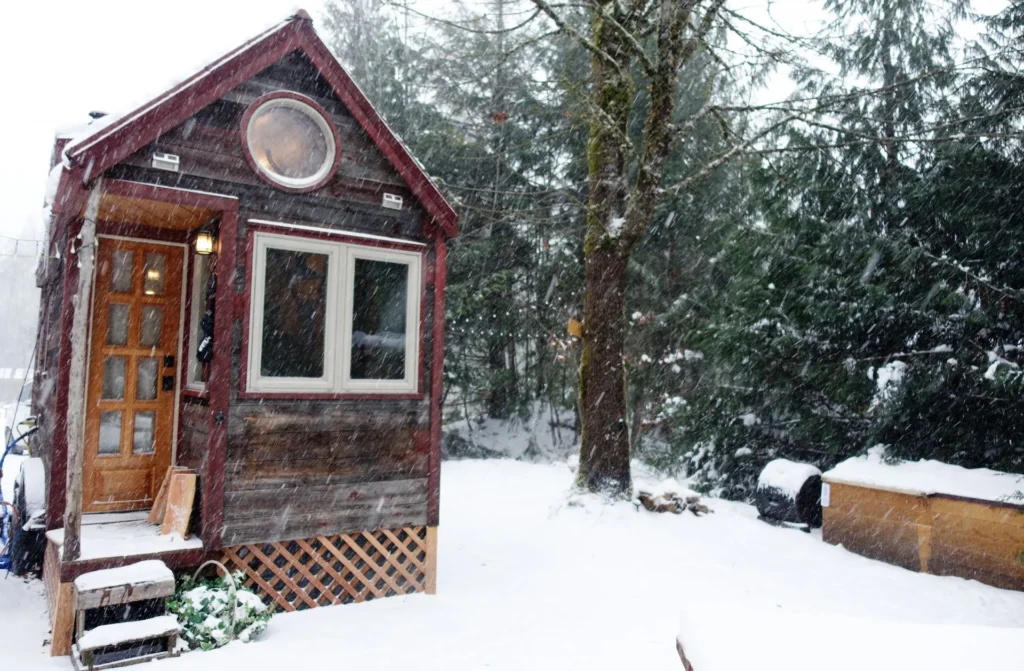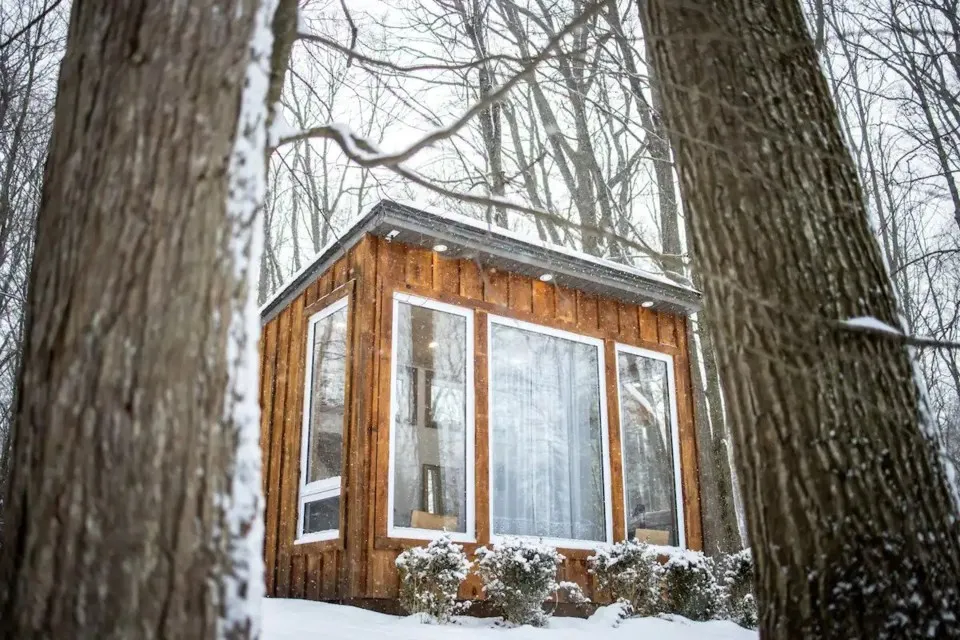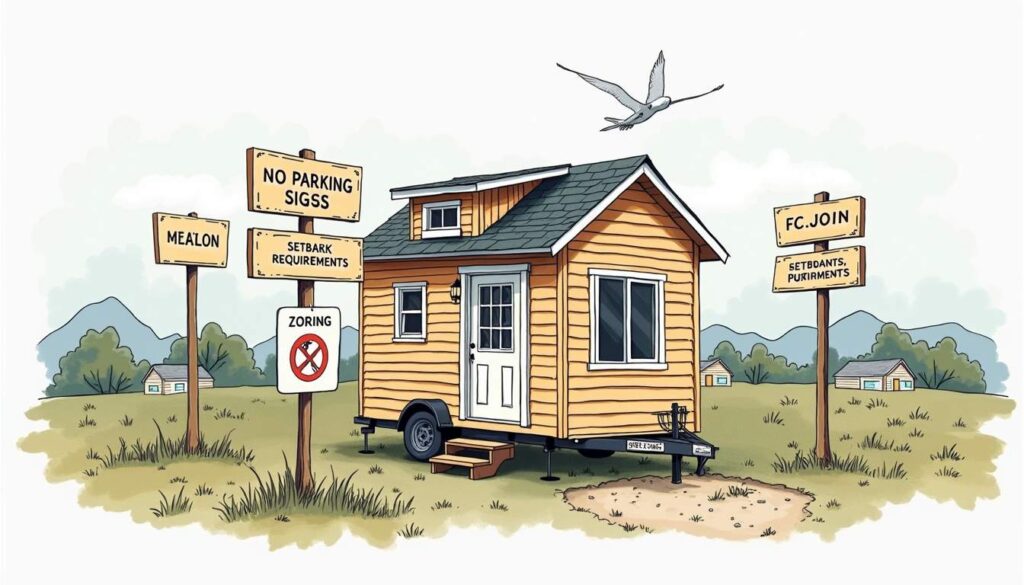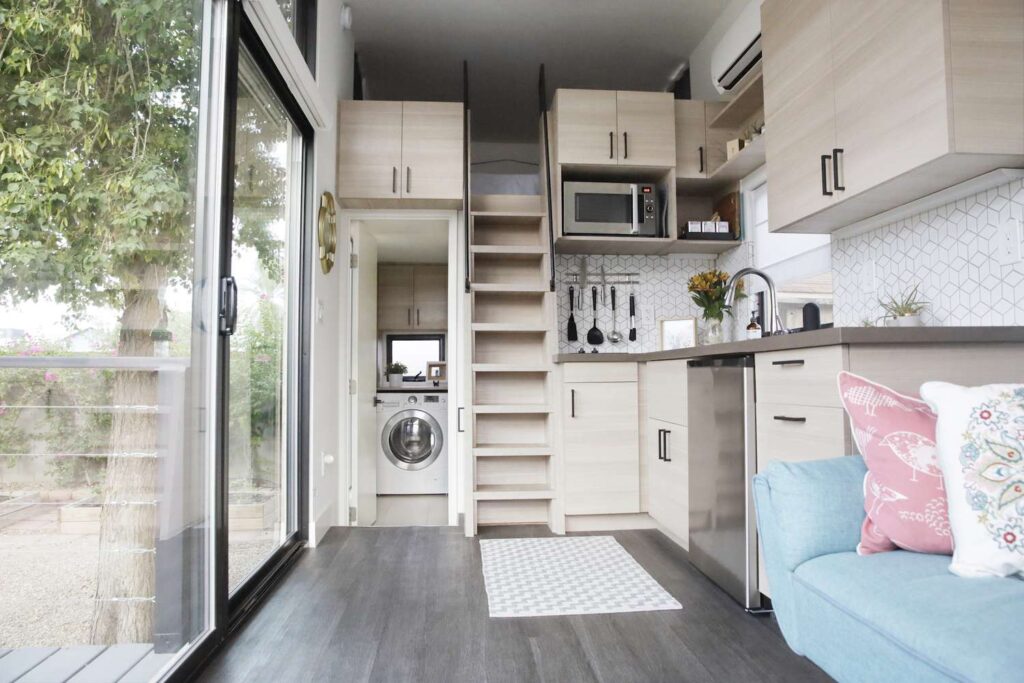Stay Warm: Top Strategies to Winter-Proof Your Tiny Home
Living in a tiny home during winter can be a cozy dream or a chilly nightmare. The difference often lies in preparation. Cold climates demand smart design, proper insulation, and reliable heating solutions. If you’re planning to winterize tiny home efficiently, these proven strategies will help you turn your small space into a warm, energy-efficient retreat.
To get a clear idea of how these strategies work in real life, we recommend watching this excellent YouTube video: “Two Winters Living in My Tiny House – Lessons Learned” by Tiny House Expedition. It offers first-hand insights into what works, what doesn’t, and how to adapt your tiny home for extreme winter conditions.
1. Prioritize Insulation
Insulation is your first and most important defense against the cold. Aim for high R-values: R-20 to R-40 for walls and R-60 or higher for roofs. Closed-cell spray foam, rock wool, and rigid foam boards are top choices due to their moisture resistance and thermal performance. Don’t forget to insulate your floor. Heat loss through the underside can be significant in tiny homes.
2. Seal Every Crack
Airtightness is essential. Use caulk, foam sealant, and weather-stripping to seal gaps around windows, doors, floor joints, and where pipes or wires exit the home. Even tiny leaks can create major drafts in small spaces. Continuous insulation and vapor barriers further reduce heat loss.

3. Choose High-Performance Windows
Upgrade to triple- or quad-pane windows if possible. These significantly reduce heat transfer compared to single or double-pane options. Pair them with thermal window treatments or blackout curtains to retain heat overnight.
4. Layer Your Heating Solutions
Don’t rely on a single heat source. Use a mini-split heat pump for efficiency, and supplement it with radiant floor heating or a small wood-burning stove. This layered approach ensures consistent warmth, even during power outages.
5. Skirt and Insulate the Underside
Cold air circulating under your tiny home can quickly chill your floor. Install insulated skirting or panels around the base to create a thermal barrier. You can also use rigid foam insulation or add spray foam underneath for added protection.
6. Protect Your Plumbing
Frozen pipes are a real risk. Wrap all exposed lines with heat-tracing cables and insulation. Disconnect and winterize exterior faucets. Consider allowing indoor taps to drip slightly during deep freezes to prevent pressure buildup.

7. Use Passive Solar Heat
Position your tiny home to maximize winter sun exposure. Large south-facing windows (in the northern hemisphere) can flood your space with natural heat. Incorporating thermal mass materials, like stone or concrete, helps store and slowly release warmth.
8. Perform Preventative Maintenance
Inspect your insulation, reseal vulnerable joints, and check all heating systems before winter hits. Clean gutters, seal roof vents, and verify weather stripping around windows and doors. Ideally, complete this checklist by October or November.
How One Family Learned to Heat Tiny Home in Alaska
During the winter of 2022, a family living off-grid in rural Alaska shared their experience trying to heat tiny home using only recycled materials and solar gain. With temperatures dropping below -20°C, they lined their walls with reflective insulation salvaged from an old greenhouse and placed black-painted water barrels near south-facing windows to absorb heat during the day. According to their blog, this passive solution raised indoor temperatures by nearly 10°C without using electricity. Their experiment went viral among tiny living forums and inspired others to rethink heat retention creatively in tiny homes.
Winterize Tiny Home with Confidence
Winter in a tiny home doesn’t have to be a struggle. With the right strategies (from air sealing and insulation to smart heating), you can enjoy the snowy season in total comfort. Invest the time now to winter-proof your tiny home, and you’ll thank yourself every time the temperature drops.
Looking for product suggestions to winterize your space? Stay tuned for our upcoming gear guide for cold-climate tiny home living!
If you’re searching for visual ideas to inspire your next build, check out our featured gallery of tiny home design ideas. You’ll find a range of models adapted for cold climates, including clever layouts, insulation tips, and efficient heating setups to help your tiny home thrive through winter. For more inspiration and expert guidance, you can also explore resources like The Tiny Life or check real-world tips at Tiny House Expedition. These sites offer practical examples, zoning info, and video guides that can support your journey to winterize tiny home successfully.



